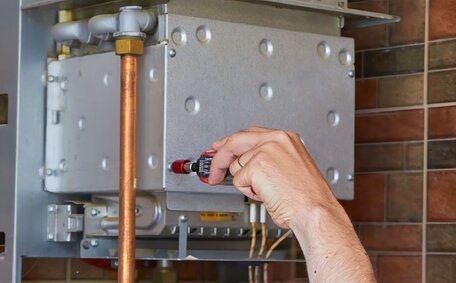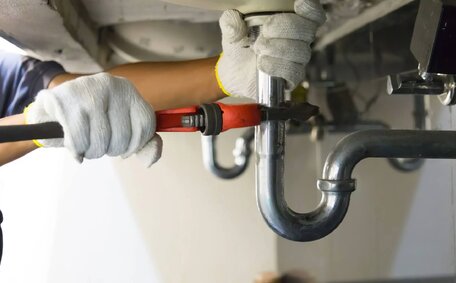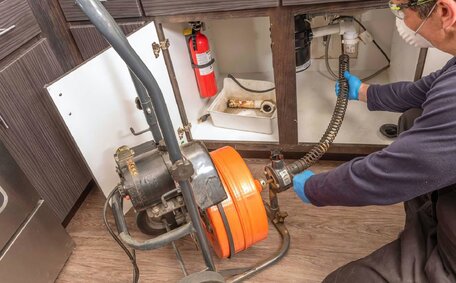Introduction to septic tank health
Septic tanks are underground systems that collect and treat wastewater from household sources such as sinks, toilets, washing machines, and showers. Their primary role is to separate solids from liquids in household wastewater, break down organic matter using bacteria, and ensure filtered liquid efficiently moves to the drain field for further purification.
Homeowners must ensure septic systems are well-maintained; neglect can result in raw sewage overflow, leading to health hazards and environmental pollution.
Untreated wastewater backup in homes can result in unpleasant smells, plumbing issues, and severe damage to the property.
Signs your septic tank needs attention
It’s crucial to be aware of septic tank issues as they arise to prevent costly repairs. Look out for indicators of a stressed system that may require immediate maintenance or pumping.
Sewage backups
Sewage backup into your home is a clear indicator of septic system problems. This issue may begin with gurgling noises in toilets and slow draining in sinks and showers. Ignoring these signs can lead to an overwhelmed septic tank and untreated waste spilling over, creating an unsanitary home environment.
Foul odours
A strong, unpleasant sewage smell from the vicinity of your septic tank or household drains indicates improper waste processing. Septic odours around your property or inside your home indicate the need for prompt attention.
Overflowing seepage pits
Check for standing water or mushy ground, particularly around the drain field area, as these are signs your septic tank requires cleaning. This area may emit a sewage odour and have lush, bright green grass even during dry weather. Overflow in this locale is a significant sign your septic tank capability is compromised, failing to manage and distribute fluid from your system suitably.
Tree root intrusion
Invasive tree roots from adjacent vegetation can damage components close to your septic tank. Trees growing on or near your septic tank drainfield are a red flag for potential issues.
When to call a professional
At the first sign of trouble, book a service with a reputable septic professional to inspect and maintain your system. A minor issue can quickly turn into costly repairs if ignored. Scheduling regular septic service, including pumping, is recommended to prevent issues.
Slow drains
If your drains, including those of your sinks and showers, are emptying sluggishly, it often signifies a developing problem with your septic tank. Lagging drainage in your drains, toilets, and tubs often herald a full septic tank at risk of spillage, deterioration, or obstruction.
Sluggish drains often indicate a full septic system struggling to process and expel sewage. Avoid using chemical drain cleaners and consider if your septic requires pumping to circumvent further system damage.
When to call a professional
If slow drainage persists, promptly call a certified plumber for septic assistance, as it may indicate sewer line problems. A meticulous check-up can also determine if septic tank cleaning forms part of routine maintenance or if more extensive repairs are needed.
If drains are completely blocked and water is backing up into your home, urgent professional help is required to address the trapped wastewater.
Preventive maintenance
Regular septic tank maintenance, including routine pumping and the use of treatment additives, can prevent slow drainage and extend the lifespan of your septic system.
Look out for other warning signs like foul odours, wet soil or sewage surfacing on your property. Together with tardy drains, these decisively suggest a full tank needs urgent care.
Lush green grass over drain field
If you notice unusually lush, green grass growing above or near your septic tank drain field, this could signal an issue. Excess nutrients from a septic system unable to properly filter waste can cause grass to flourish.
An unusually green leach field may indicate that your septic tank’s effluent filter is compromised, leading to overflow and potential groundwater contamination. Sewage surfacing above the drain field means the soil is saturated and unable to absorb waste from your tank.
Bright green grass concentrated around the drain field, particularly in dry weather, could indicate your septic system requires professional intervention. Neglecting this issue can worsen environmental damage and septic system failures.
Standing water or wet spots in yard
Standing water or soggy, wet areas in your yard near the septic tank or drain field can signal your system is failing to properly absorb and filter wastewater. This backup indicates the soil is saturated and unable to percolate liquid away from the leach field.
It’s normal for the drain field area to be slightly damp or muddy after heavy rain. However, any pools or spots of standing water persisting more than 48 hours after precipitation is a red flag. This indicates sewage effluent is overflowing rather than filtering away through subsurface soil layers.
Moist patches accompanied by a putrid, sulphurous stench are telltale signs mandating prompt action and assessment. Bright green grass flourishing right around these wet areas can be another giveaway of too much moisture from a stressed septic system.
If you observe signs of standing water, promptly identifying its source is critical for addressing septic system issues. Leakage at tank access points or the distribution box may suggest damage, while extended sogginess could indicate saturated soil.
Standing water or excess wetness in the yard calls for prompt inspection. A professional assessment can determine if tank pumped, system repairs or soil replacement is needed to restore proper septic drain field function.
Sewage backup into home
Raw sewage backing up into your home, noticeable at the live site, is an unequivocal and serious red flag. Gurgling sounds from drains followed by foul odours indicate wastewater is overflowing internally rather than exiting properly. If left unaddressed, you might notice your bathrooms flooded with sewage, fixtures overflowing, and your home contaminated with bacteria.
Initiate prompt measures such as restricting hot water use, contemplating porta potty rental, and reaching out to a skilled plumber for urgent septic assistance. Indoor sewage backup risks health hazards and extensive, costly property damage if not rapidly resolved. Our team is available 24/7 to diagnose the root cause and perform necessary repairs to restore proper system function.
Gurgling sounds from plumbing
Gurgling sounds from your sinks, toilets, or other plumbing fixtures are early warning signs of septic system issues, suggesting wastewater is not flowing correctly and backing up instead.
Gurgling sounds are most common in toilet bowls as air from the sewer escapes through the water, often indicating when your tank is reaching capacity. Your sinks and showers might echo similar disruptive drain behaviour when endeavouring to empty. Such sounds connote that your full septic is becoming burdened and faltering in its ability to process waste competently.
Potential causes
There are a few reasons gurgling plumbing can signal septic issues:
- A tank that’s overdue and full, indicating it tank needs pumped to avert blockages. Excess sludge and scum accumulate when waste is not removed often enough, a sign your septic tank can no longer perform efficiently.
- Clogged plumbing or drain field preventing wastewater from exiting the tank.
- Damaged or improperly installed plumbing pipes allowing sewer gases to escape.
While subtle, gurgling should not be dismissed as it usually worsens over time. Contact a professional to inspect your septic tank and plumbing when first noticed. Prompt maintenance can restore proper drainage before more severe backups and overflows occur.
When to call a professional
Seek immediate professional evaluation at the first sign of septic issues to prevent minor complications from becoming major setbacks.
Consult an experienced, licensed plumber who can accurately diagnose issues and recommend appropriate solutions. DIY repairs may exacerbate the problem or cause contamination.
Call a professional right away if you notice any of these urgent warning signs:
- Sewage backups into the home
- Strong sewage odours inside or around your home
- Standing water or soggy soil over the drain field
- Plumbing gurgling noises
- Toilets or drains back up after one use
Make an appointment for non-emergency concerns like unusually lush lawn grass or slow drainage. Regular septic tank pumping and a well-implemented maintenance plan can prevent various issues.
Remember, as septic system experts, you can rely on our comprehensive range of solutions for diligent maintenance, skilled repairs, or emergency assistance to keep your system in optimal condition.
DIY repairs may exaceong sewage odours inside or around your home
Standing water or soggy soil over the drain fieldPlumbing gurgling noisesHow to prevent septic tank emergenciesencies and expensive repairs down the road.
Schedule annual septic tank inspections and professional pumping every 3 to 5 years. This routine care removes sludge, preventing clogging and backups.
Avoid overloading the system
Be mindful of water usage and spread out laundry and dishwasher loads. Limit use of multiple fixtures at once. Overloading with too much wastewater at once can cause backups.
Don’t flush solids
Refrain from flushing solids such as paper towels and grease, similar to a grease trap’s function, as well as other non-biodegradable items down your drain plumbing. This debris can clog components leading to septic failure.
Inspect for root intrusion
Tree and plant roots can invade and damage your septic drainage pipes. Keep trees and shrubs at least 10 metres away from your system. Inspect annually for root growth.
Use septic-safe products
Avoid commercial drain cleaners, solvents and harsh chemicals which can kill beneficial bacteria inside your septic tank, reduce breakdown of solids and cause clogs.
With proper maintenance and care for your pipes and septic system, you can help prevent emergencies and keep everything running smoothly for years.
Taking preventative measures is the best way to avoid septic tank emergencies and expensive repairs down the road.
Conclusion
Maintaining a properly functioning septic system is a crucial responsibility for any homeowner.
Stay alert to warning signs to avoid minor issues becoming costly emergencies. At the first trouble signs, contact a professional for thorough ins4/7 emergency availability, our licensed technicians are equipped to provide comprehensive septic system solutions, from routine pumping to full replacements.
Don’t wait for issues to emerge – proactive regular maintenance is key. For trusted local services to maintain proper septic system function, remember that we’re here to help anytime.






